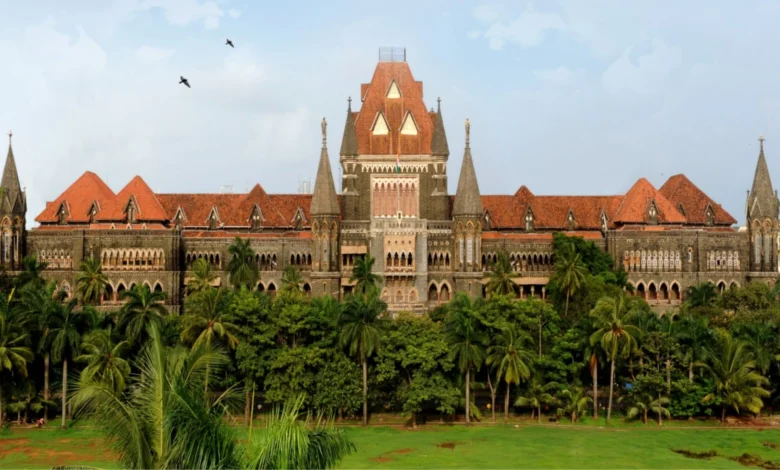Bombay High Court: No Automatic Monetary Relief for Illegal Transfer Under Labour Law

The Bombay High Court has ruled that a worker cannot claim financial compensation under Section 33C(2) of the Industrial Disputes Act unless they have a clear entitlement established by law, contract, or workplace customs. The court clarified that a ruling declaring a transfer illegal does not automatically grant monetary compensation. It also emphasized that Section 33C(2) cannot be used to create new rights that were not previously determined.
Case Background
Deepak Vallabhdas Intwala worked at Casby Logistics Private Limited, handling accounts, wages, and cheque collections. In 2009, the company transferred him from Mumbai to New Delhi. He argued that this transfer was illegal as it violated Item 9-A of Schedule IV of the Industrial Disputes Act, 1947.
To challenge this transfer, he filed a complaint under the Maharashtra Recognition of Trade Unions and Prevention of Unfair Labour Practices Act, 1971 (MRTU & PULP Act). In 2013, the Industrial Court ruled in his favor, declaring that the company had engaged in unfair labor practices and invalidating the transfer order.
The Compensation Claim
Following this ruling, Intwala claimed that the wrongful transfer had resulted in salary deductions. He sent multiple notices to Casby Logistics, requesting reimbursement of Rs. 46 lakh for the lost wages and benefits. When the company did not respond, he approached the Labour Court under Section 33C(2) of the Industrial Disputes Act, 1947, to recover the amount.
However, Casby Logistics denied his claim, arguing that the court’s 2013 decision only invalidated the transfer and did not award financial compensation. The Labour Court rejected Intwala’s claim, leading him to challenge this decision in the Bombay High Court.
Legal Arguments
- Petitioner’s Argument (Intwala’s Side): Intwala’s lawyer, Vinay Menon, argued that the Industrial Court’s 2013 ruling automatically entitled him to monetary benefits. He claimed that the “cease and desist” order nullifying the transfer effectively restored him to his previous role, making him eligible for back wages and benefits. He also contended that Section 33C(2) allows the Labour Court to quantify and enforce existing monetary entitlements. He insisted that since the Industrial Court had ruled in his favor, the Labour Court’s role was merely to calculate his dues.
- Respondent’s Argument (Casby Logistics’ Side): Casby Logistics’ lawyer, Vijay P. Vaidya, countered that the 2013 ruling only reversed the transfer order and did not grant Intwala any monetary compensation. He argued that claims under Section 33C(2) must be based on existing rights and cannot be used to create new entitlements. The company also pointed out that Intwala’s claim was excessively delayed, as he sought recovery for deductions dating back to 2001 but only filed the case in 2015.
Bombay High Court’s Ruling
- No Monetary Claim Without Legal Basis: The court ruled that compensation under Section 33C(2) can only be granted if the worker already has a legal, contractual, or customary entitlement. Since the Industrial Court’s ruling did not explicitly award compensation, the Labour Court was correct in rejecting the claim.
- Transfer Ruling Doesn’t Automatically Grant Compensation: The court clarified that declaring a transfer illegal does not automatically entitle an employee to back wages. Financial compensation requires a separate legal ruling.
- Section 33C(2) Cannot Create New Rights: The court held that Section 33C(2) is meant to enforce pre-existing entitlements, not establish new ones. Intwala’s claim for lost wages was never granted in prior proceedings, so the Labour Court could not decide on it under this provision.
- Unexplained Delay in Filing the Claim: The court noted that Intwala had waited too long to file his claim without giving a valid reason. Since the deductions dated back to 2001 and the application was only filed in 2015, the court rejected his plea on grounds of delay.
- No Automatic Back Wages for Unfair Labour Practice: The court emphasized that just because an employer engages in unfair labor practices does not mean an employee is automatically entitled to monetary compensation. Since the Industrial Court had not awarded damages, Intwala had no legal basis to claim them through Section 33C(2).
Conclusion
The Bombay High Court reaffirmed that claims under Section 33C(2) must be based on pre-existing entitlements and cannot be used to create new rights. In this case, the Industrial Court had only invalidated the transfer order and did not grant financial relief. Therefore, the Labour Court could not award compensation under Section 33C(2).
